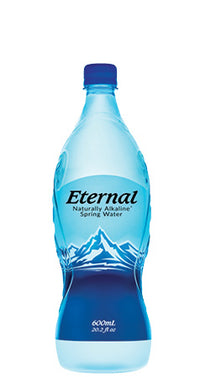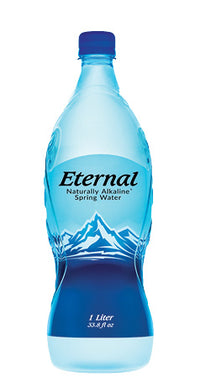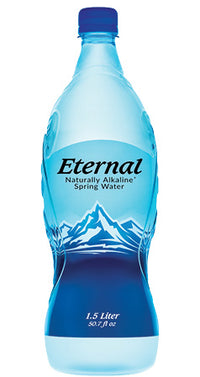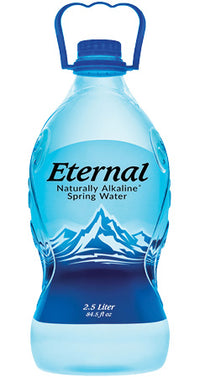
We understand that hydration is linked to a wide range of health benefits. Bottled water is a popular, convenient method of water delivery. But many people question whether they should use bottled water or simply rely on tap water.
In today’s blog, we’ll take a deeper look at the environmental, health, and economic impacts of bottled water and tap water.
What is Tap Water?
At a basic level, tap water is water supplied through a network of pipes derived from public water systems. PWS are municipal bodies that are responsible for regulating, operating, and maintaining treatment plants. The water is collected and treated at treatment facilities, and then travels through pipes until it ends up at a drinking source, such as your faucet or a water fountain (source).
Understanding tap water's treatment processes and sources are crucial when comparing it to bottled water. Treatment facilities add chemicals to the water, which bind to unwanted particles. The water also passes through filters using substances such as charcoal to help remove particles, viruses, bacteria, and other chemicals. And finally, almost all treatment facilities are required to use potentially harmful levels of chlorine to help kill germs, bacteria, and parasites.
In addition, we must consider the distribution systems. Municipal authorities oversee tap water systems via the water’s source or the treatment center. At this point, the resident/owner must maintain the plumbing system.
What Is Bottled Water? How Is Bottled Water Made?
Bottled water refers to water that has been packaged for sale in a sealed bottle. Depending on the maker, bottled water can come from numerous sources, including natural springs, wells, or even public water systems. This makes the task of figuring out where your water comes from easier than when it’s tap water.
There are many types of bottled water, including distilled water, artesian water, mineral water, spring water, well water, sparkling water, and purified water.

Let's explore the undertakings and procedures for creating and distributing bottled water.
Selecting a Water Source: The bottled water maker selects a water source — either naturally sourced or from municipal water. An example of naturally sourced water is Eternal Water’s naturally alkaline water.
Just like tap water, bottled water companies prioritize drinking water safety by employing various purification methods such as reverse osmosis, ozonation, distillation, UV light treatment, or carbon filtration. However, unlike tap water, some spring waters need minimal filtration or treatment due to their origin from pure and pristine sources, far away from industrialization and pollutants. A prime illustration of such water sourced from untouched springs is Eternal Water’s alkaline bottled water.
Bottled water undergoes complex processes that ensure its safety, quality, and taste. All bottled water undergoes testing to ensure it’s free of contamination and adheres to safety regulations. The FDA requires that bottled water manufacturers follow the CGMP regulations that detail the processing of bottled water products. According to the FDA, the water must be sampled, analyzed, and found to be safe and sanitary.
Federal law mandates that the FDA's bottled water regulations must be as stringent or more so than those governing tap water, while also providing no less protection to public health than the Environmental Protection Agency's (EPA) regulations for tap water.
At this stage, the manufacturer packages the water into its final distribution vessel, the bottle. Bottles are mostly made of plastic, but in some cases, companies use glass, aluminum, and even paper. Finally, labels are created that display pertinent branding information and the best-by date. Refer to our "will your bottled water go bad or expire" guide for more information on best-by dates.
The water now journeys to convenience stores, grocery, hotels, malls, airports, and more locations where consumers find bottled water near them.
Hydrate Smarter: Subscribe for Wellness Tips
Bottled Water vs. Tap Water: Compare and Contrast
When it comes to comparing tap water and bottled water, several key factors come into play, including price, health and safety, and environmental considerations. While there may be minimal differences categorically, it's important to acknowledge that the presence of pollutants and minerals at local levels where tap or bottled water is sourced can lead to notable distinctions.
Health & Safety: Tap water relies on piping networks which increases risk of interactions with sewage or heavy metal leaks from archaic copper piping.
Public water systems use both ground and surface water (lakes, rivers, and reservoirs). Therefore, a tap water source varies by region. These sources are non-negotiable, meaning municipalities cannot change the source. Leveraging surface waters as a water source increases the risk of pollution.
The inclusion of fluoride to many tap water treatments has become a subject of debate for many. Different regions handle this matter differently, with some municipalities adding fluoride in conservative amounts while others deliberately omit it. Proponents argue that fluoride enhances dental health, while critics view its addition to tap water treatments as excessive.
Chlorine is another chemical commonly used as a disinfectant in many tap water treatment facilities at potentially harmful levels to disinfect the water. In contrast, most bottled waters do not use chlorine at all and most of the time it is additionally treated beyond typical tap water, making it generally safer to drink. However, select bottled water brands, such as Eternal Water, follow a minimalist filtration approach, recognizing that their water originates from remote, unpolluted sources, untouched by industrialization, preserving its naturally occurring minerals and electrolytes while maintaining its exceptional taste.
Testing & Safety: The U.S. Environmental Protection Agency (EPA) regulates tap water under what's known as the Safe Drinking Water act. The U.S. Food and Drug Administration (FDA) regulates the bottled water industry. Both agencies overseeing bottled water and tap water are reputable, trusted agencies.
It's necessary to understand that clean water remains a precious resource. Bottled water consumption is a more reliable, safe option for people worldwide.
Health: Consumers may find it easier to determine the source of bottled water vs. tap water.
A predominant concern involving tap water is the presence of lead in pipes, which may find its way into your drinking water. The CDC recommends drinking water from a "point of use" filter certified by an independent testing organization to decrease lead-associated health risks.
Environmental: Critics often focus on ecological concerns involving the use of plastic bottles. It’s important to note that bottle usage extends far beyond just bottled water, encompassing products like coconut water, lemonade, sports drinks, and other sodas. However, the availability of tap water tends to thrust it into the center of the debate more prominently.
Tap water decidedly wins out on environmental concerns related to plastic usage. However, it also plays a crucial role in addressing concerns around providing safe drinking water to people worldwide.
Bottled water does serve a vital purpose by providing clean drinking water in domestic disaster areas and regions lacking access to clean drinking water. Moreover, bans on bottled water sometimes have unintended consequences. For example, in 2013, the University of Vermont banned single-use bottled water causing a rise in consumption of less healthy beverages like soda.
Furthermore, experts generally consider drinking water a healthier choice than drinking sodas or sports drinks. We point this out to say that unless someone only opts for tap water, choosing other types of drinks should warrant similar sensitivity toward plastic usage.
Taste: The taste of anything falls into a profoundly subjective human experience. That said, bottled water companies often add in minerals and electrolytes to enhance the taste and increase the pH. They strive to deliver a more enjoyable and satisfying drinking experience.
Price: Tap water is free, whereas bottled water costs. There is little complication here.
Conclusion: Making an Informed Choice Between Bottled Water and Tap Water
In the bottled water vs. tap water debate, convenience, consistent taste, and reliability during disasters make bottled water appealing. Tap water is cost-effective and environmentally friendly, but concerns about harmful levels of chlorine and lead contamination exist. Ultimately, the choice depends on personal preferences, local water quality, accessibility, and environmental consciousness.
Eternal Water, sourced from remote, pure, and pristine springs, offers exceptional taste while preserving essential minerals and electrolytes. Find our naturally alkaline water near you in over 65,000 stores nationwide. Stay hydrated and make an informed choice based on your needs and priorities.



